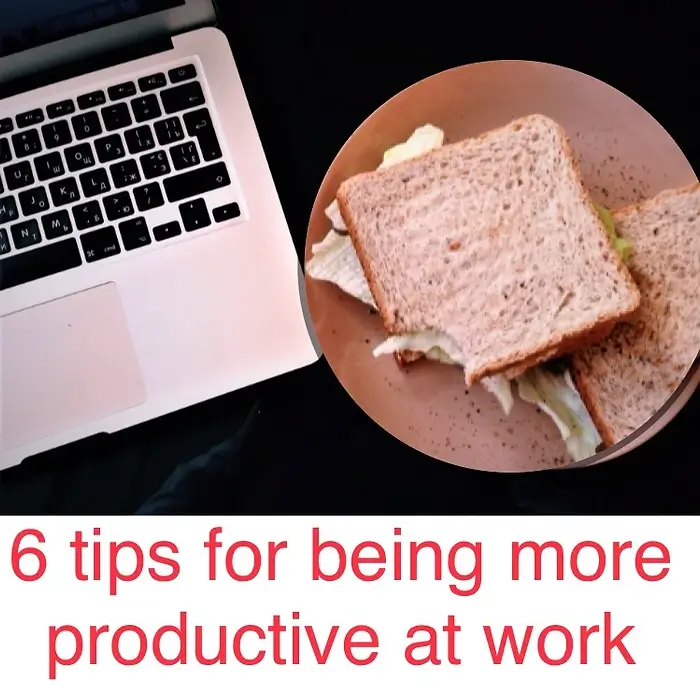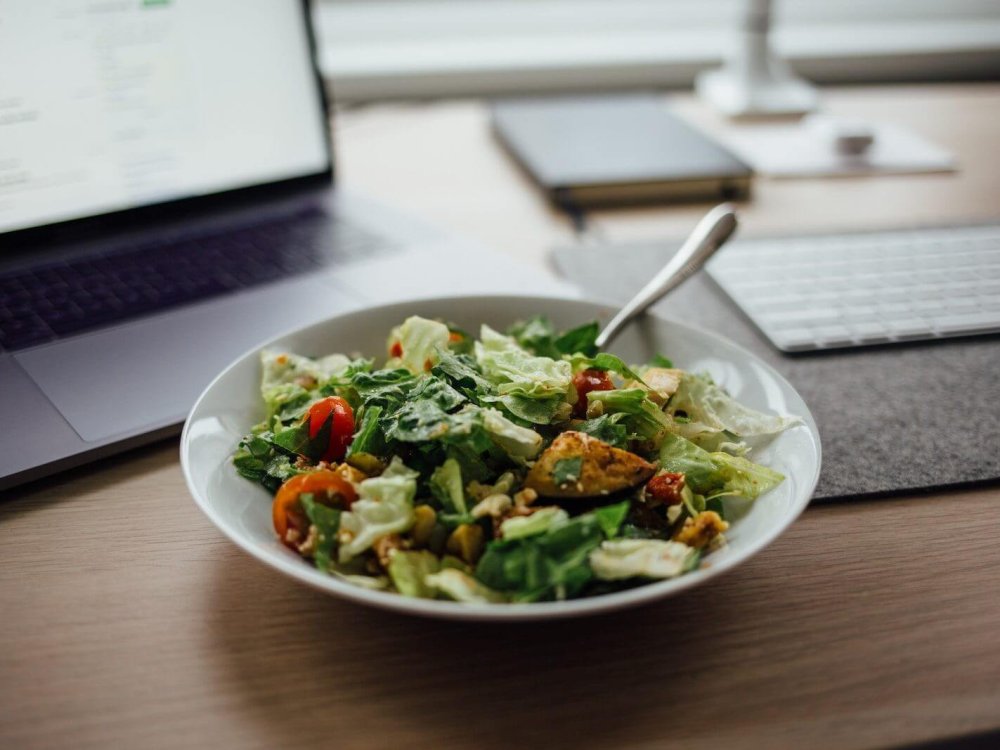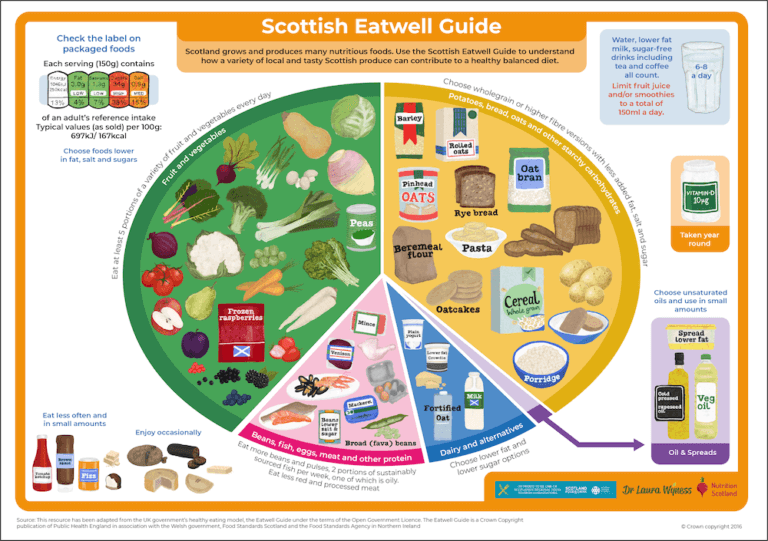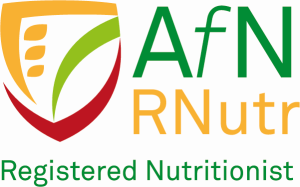Diet can play a huge impact on your energy levels, your cognitive function and your overall productivity at work. Poor nutrition and dietary habits can impact your mood, lead to high levels of stress and depression, irritability, reduced concentration, fatigue and lower energy levels.
There are a variety of workplace health initiatives that could be implemented to make a positive impact on staff productivity and well-being. For example:
- tailored healthy eating workshops
- reviewing individual staff diets
- providing practical and informative nutrition materials such as lunch and snack ideas
- reviewing available food options in the workplace
- setting workplace diet and health challenges.
Evidence shows that the return on investment for some workplace health initiatives can range from £2 for every £1 spent (1:2) to £34 for every £1 spent (1:34).

1. Clever carbs
Your brain needs glucose to function properly and carbohydrates are the best source of this nutrient. However ‘carbs’ come in different physical forms, from simple sugars to complex and starchy carbs. Clever choices are the low-glycemic index carbs which help stabilise blood glucose levels by converting to glucose more slowly and providing your brain with sustained energy.
Low-GI foods include wholegrain pasta, rye, multigrain or granary bread, oats, brown or Basmati rice, quinoa, couscous, barley, sweet potato or new potatoes in their skins, yoghurt, milk, beans, lentils and most types of fruit and vegetables. These foods are preferable to high GI foods such as white bread, white rice, refined breakfast cereals, sugary drinks and sweets that all release their glucose faster.
When under pressure at work you may crave foods that will provide a quick burst of energy, but these will actually make it harder for you to focus and will leave you feeling hungry soon after. For a very quick and convenient low GI snack try a natural yogurt with some flax seeds, chopped apple with peanut butter, or vegetable sticks with hummus.
2. Refuel regularly
Your blood glucose drops 2-4 hours after eating a mixed meal, so eat every 3 hours to keep your energy levels constant and to prevent hunger. If you have a lot of work to get through, you may feel like continuing without a break. However, by doing this, your productivity and energy levels are likely to decrease, so it is far better to stop for a brief break, even 5-10 minutes AWAY from your desk, to refuel and get some activity.
Skipping meals can lead to your body not getting the nutrients it needs so if you have a busy day, set an alarm to remind you to stop for a meal or snack. Make sure you have breakfast, and block off some time for lunch. Having some healthy snacks to hand can help avoid reaching for sugary biscuits or sweets. A bag of chopped veggies, unsalted nuts, oatcakes, bananas, sliced apple and nut butter, plain yogurt and seeds are all useful to have as handy snacks in the office.
3. Smart hydration
Even mild dehydration can have a notable impact on your cognitive function and ability to concentrate and perform tasks that require your attention, memory or brain processing skills. Sipping water throughout the day, or getting up to refill your glass from the water cooler will help keep you hydrated and stretch your legs.
The caffeine in coffee can improve your alertness, although too much can be detrimental. Moderate coffee consumption of around 4 mugs (instant coffee) a day is generally safe, although pregnant women are advised to consume no more than 200mg of caffeine per day (around 2 mugs of instant coffee). Coffee also contains a variety of antioxidants which may be beneficial to your brain and liver health (Benelam & Wyness, 2010; Wyness, 2017).
Green tea has also been shown to improve alertness, performance, memory and focus (Dietz & Dekker, 2017). One of the components in green tea, is the amino acid called L-theanine and it is thought that the combination of caffeine and L-theanine is associated with better attention and alertness (Einother & Martens, 2013).
4. Fish on the brain
Almost two thirds of your brain is made up of fat and half of that is omega-3 fats. Oily fish, such as salmon, trout, sardines and mackerel are rich sources of the long chain omega-3 fatty acids (DHA and EPA). Having a small container of mackerel or salmon to spread on oatcakes or wholemeal pitta bread is a great snack to have at work. It’s probably a food you should have away from your desk too, unless your work colleagues love the smell of fish wafting through the office!
Aim to eat 2 portions of fish a week, one of which should be an oily fish. The omega-3 fatty acids are essential for learning and memory and may be beneficial in preventing and treating depression.
It is best to get omega 3 from foods, but if you really don’t like fish, then look out for omega-3 enriched foods such as eggs, some yogurts, plant-based drinks, breads and spreads. An omega-3 supplement may also be helpful. Check the label for the DHA and EPA content and choose one that will provide about 450mg EPA and DHA, which is a similar amount provided by eating 1-2 portions of fish a week.
5. Brainy basket of fruit and veg
Fruit and vegetables are packed with a variety of micronutrients and antioxidants as well as carbohydrates for energy. The combination of these nutrients is thought to increase the brain’s production of dopamine and serotonin neurotransmitters involved in mood, behaviour and cognition.
The results of a randomised controlled trial of 171 young adults conducted over a 14 day period suggested that providing fresh fruit and vegetables to eat can have psychological benefits such self-reported improvements in vitality, flourishing and motivation (Conner et al, 2017).
Aim to eat a variety of different coloured fruits and vegetables. For example, blueberries and other dark red or purple fruits contain compounds called anthocyanins which have anti-inflammatory and anti-oxidant effects. Evidence shows that blueberries may be effective in improving or delaying short-term memory loss (Subash et al, 2014). Yellow/green coloured fruit (e.g. kiwi fruit) and veg (e.g. avocado) tend to contain lutein, which is beneficial for eyesight and red fruit and veg (e.g. tomatoes and cranberries) contain lycopene which has anti-carcinogenic properties and can help protect against cardiovascular disease.
6. Nimble nuts and super seeds
To function well, your brain needs a variety of vitamins and minerals. Nuts and seeds are great for providing energy as well as a range of micronutrients and antioxidants. For example, pumpkin seeds are a great source of zinc which is beneficial for enhancing memory and thinking skills. They also contain B-vitamins and magnesium which are very useful when you feel stressed.
Regular consumption of nuts may help prevent neurodegenerative diseases (Pribis & Shukitt-Hale, 2014) and sharpen memory (O’Brian et al, 2014). Walnuts, Brazil nuts, almonds, cashews and chestnuts are all great to have as a handy snack, but note that a portion is equivalent to a small handful of nuts or 30g as they are quite a calorie dense food and high in fat.











